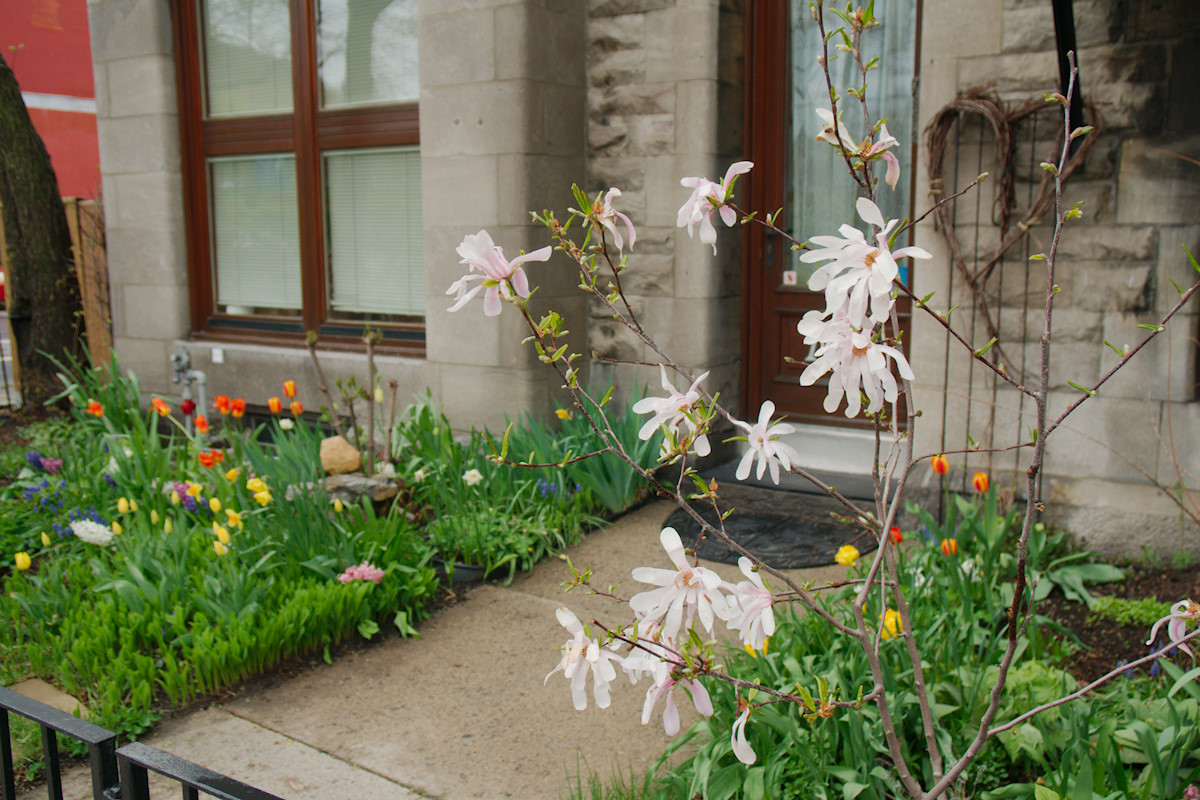Get posts by email
Growing up with the Bible
May 8, 2017
This is the third post in The Evolving Journey of Faith blog series.
I know that every position one takes on the Bible, either from within the Christian community, or without, can be sliced and diced six ways to Sunday by some other perspective, someone with more "faith", more knowledge, more training.

I am not a Bible scholar, theologian or pastor. I am aware that for every point I make in this post there is a counter argument and different way to look at things. I think what I'm asking for, not so much from readers, but from the Christian community at large, is for a mutual understanding that yes, there are multiple ways to read and interpret the Bible in a quest for truth. And there are many ways to live faithful to the text and the Spirit of the text.
There are so many things I could say about how I used to read the Bible and how I don't read it that way any more, and there are boatloads of discussions (PhD thesis' to blog posts) around the ideas of infallacy, inerrancy, and literal interpretation that are loaded with assumptions and presuppositions that I just don't have the time or energy (or much interest, to be honest) to untangle. So I stay mostly clear of those terms. I completely recognize this is inadequate for some people. That's ok. I'm not here to convince anyone of my point of view, just to bear witness.
Faith is complicated, perhaps this is no more evident than in how Christians interpret the Bible.
I'm pretty sure I was taught to interpret scripture literally. I say "I'm pretty sure" because I don't remember the details, or specific teaching. What I do know is that I grew up thinking there was no other way to read the Bible, so either I was taught this, or assumed it for myself.
I emerged from childhood believing that all the stories in Bible, including the creation of the world, transpired exactly as told in my NIV translation. Again, I don't know if this belief was owing to my natural cognitive development as a child or the collective consciousness and teachings of my tradition. I suspect both.

It never occurred to me that my tradition interpreted the Bible through a particular lens of group experience, shared history, and church teaching. I just thought we were right, which for me meant that everyone who saw it differently was wrong.
I grew up in the 80's. There was a lot happening in the North American evangelical tent. The Chicago Statement of Biblical Inerrancy had just been published in 1978, it was a decade of the Moral Majority and the "Religious Right". As a Canadian, I was removed somewhat from these American organizations and ideologies but my rural Alberta upbringing was politically, morally, and Biblically conservative, much like these movements to the south.
I had the impression that the Bible's primary purpose was to be read as a manual for living; that we could go through life applying specific texts to specific situations.
As I grew into my teenaged years, it often felt like the Bible was used to manipulate me and to manipulate people in general; it was wielded to elicit, condone, and condemn certain actions in other people. It was used to point out the error of our ways and the corrective action for that error. I was not invited into debating with the text or questioning based on experience or evidence to the contrary.

Then there was the whole matter of science and trying to reconcile the fact that I am science-minded person, by virtue of living in the modern age and also in my natural affinity for rational thought. As a young adult, I could not reconcile science and the Bible and yet I believed the former to be a search for the truth and the latter to be the truth. The fact that the two did not seem to align well was disorientating for me.
How my tradition understood the Bible and the growing cognitive dissonance I started to experience as a young adult between science and literal Biblical interpretation, left me with a fraught relationship with this sacred text. For these reasons, and also because let's face it, the Bible isn't easy reading (something I now appreciate), reading and trying to understand the Bible is one part of my faith practice that has carried a heaviness and burden for many years.
There's been so much burden, obligation, and confusion associated with the Bible in my experience (not to mention reticence on the part of the community to talk about this reality for many people) and because of this, I have handled this text lightly with my own children. I have not wanted to wield the Bible as a tool to manipulate, cajole, or condone. Nor have I wanted to teach them it's something that it's not. I didn't want to bequeath them my own fraught relationship with this book but rather to invite them, through non-coercive Bible reading, conversations, prayer, and day-to-day living, into a journey of faith.

I wish I'd had access to Telling God's Story by Peter Enns when my kids were little. His guidelines for what and how to teach the Bible provide an informed, systematic and non-sectarian plan for teaching the Bible to children. Since getting the book a few years ago, I've incorporated the ideas for the middle and high school years into our home Bible conversations and teaching. (I am currently listening to Peter Enns' new podcast The Bible for Normal People, and he just did an episode on this very subject.)
In my own young adulthood, although my faith was held firm in a loving family network, I held the Bible at arm's length. My questioning, inquisitive mind couldn't make sense of everything (for good reason), and I resolved this tension by trusting that God had it figured out, even if I didn't. God was the ultimate authority in which I trusted, even if I couldn't make sense of how to interpret the Bible.
For many years, the safest option with the Bible was to interpret the scriptures in a way that was consistent with my tradition, or the church I was attending at the time, in case my conclusions didn't line up with what I had been taught or the agreement of the community. It felt dangerous to examine the text too closely with historical and intellectual rigor, or to filter what I read through personal experience and inner wisdom. The latter of which I was taught not to trust since outer wisdom, specifically the Bible, was the supreme authority in matters of faith.

When I started to accept that there are tensions in the text itself and in how Christian communities through the ages have interpreted the text; when I started to accept that scholars, historians, and theologians have been wrestling with these words for millennia; when I started to accept it might be ok to see things differently than my tribe; when I started to accept that yes, it's complicated, and that's ok; that's when I started to get more comfortable with the Bible.
The Bible itself provides reassurance to me that the wrestle is ok, that the answers are not straightforward. The parables of Jesus, the head scratching story of Job and the honest writings of Ecclesiastes (probably my favorite book in the Bible), the enlightened understanding of the Divine as told in the gospel of John, the redemptive and reconcilatory themes of Romans (I could go on and on), oh my goodness, there is much treasure to dig from this text, so much to chew on.
When there is no burden or obligation, when the Bible doesn't feel like a tool to manipulate, that is when I'm drawn into the living vitality of the words. I'm drawn to the way these ancient writings speak to modern suffering, hopes, and aspirations; the overarching story of God renewing the human heart and restoring our connection to all creation; the upside-down message of the Gospel - the Bible draws me in again and again. There is no other book like it, for me.

Over the years I may have been conflicted about the Bible but I wasn't conflicted about Jesus, his identity or his message. Firstly, I knew Jesus loved me. If you are told this enough as a child, you are apt to believe. And the testimony of Jesus in the Bible didn't raise any doubts about this possibility.
There are so many ways to understand Jesus and I can't even begin to explain all the facets of the Divine that his life and teaching shows me. In essence, I believe that God came to humanity, in Jesus, to show us a completely different way of understanding God, so that we could live in freedom and security in relationship with the Divine, and that the truth of our relationship with God would transform our hearts, transform our lives.
I believe that Jesus was God showing up, fully, in human form, to experience the suffering and separation (from God, each other, and self) of the human condition, to show us how to be human, and to show us God's response to being human - God is with us, God is for us, God is in us. In his life, death, and resurrection Jesus the Christ reconciles us to ourselves, to each other, to the Divine, revealing to us our true God-given identity and the reality of a different Kingdom.
Jesus challenges and sometimes confuses me, he definitely convicts me (lately he completely delights me in his subversiveness). In any case, I am drawn to Jesus again and again. I love Jesus and have since I was a child. Christ is true north for me, and the center of my being.

I heard this recently on a podcast (can't remember which one), "if Jesus is what God looks like than this is very good news". Somewhere in my spiritual subconscious this has always been true for me.
Next post in the series: Wrestling with faith.
Filed Under
Part of Series
-

Jen Liminal Luminous on May 31, 2017, 9:57 a.m.
I too struggle, because I haven't grown up with the Bible, I have grown up with society's message about the church and the Bible, which isn't flattering. This has made it very difficult to become a Christian as an adult, because I had to get past all of the messages I had been given by everyone else about the Bible and the church and Jesus.
It's been difficult
BTW since your website update my RSS feed stopped and its only because I realised I hadn't heard from you for ages and popped in that I noticed you had been blogging. I think it's because the blog page is no longer your home page
-

Renee on May 31, 2017, 10:37 a.m.
Hi Jen, the RSS feed was lost in the transition to the new blog. The new feed link is: http://renee.tougas.net/feed/
-
You can subscribe to comments on this article using this form.
If you have already commented on this article, you do not need to do this, as you were automatically subscribed.






Krista on May 8, 2017, 6:23 p.m.
I have always been a wrestler, Renée. And this caused great angst for me - a feeling of disingenuity which goes against my deep need for living with clear purpose and direction. Unlike you, I never really trusted that Jesus guy. He felt like the perfect older brother that I could never measure up to. It is only in these past years that I am coming to learn a little more about Him, to feel a little safer getting closer. To see that He is not what religion has often told me (or my interpretation of that based on the rules and conformity and unwillingness to engage with hard questions and uncomfortable people) that I saw or experienced.
But lately, I begin to get a peek at this guy who calls me to freedom. Who speaks straight to the heart of our most vulnerable places and tells us we are loved. That he sees us and loves us and accepts us. And this gives me hope.
I look forward to reading more.
Renee on May 10, 2017, 10:38 p.m.
Thank you Krista for sharing your experience.
Something I'm not writing about in this series directly, is my evolving relationship with the idea of God. It comes out in parts of what I'm writing, but not explicitly.
I am the kind of person who is always looking for an authority I can trust (I think as a way to manage insecurity). Growing up and in during my adult years, when I can't make sense of the Bible or how things are taught, I have found peace "trusting" that someone ultimately is in charge here and all will be revealed, someday (how we all came to be, why we suffer, etc.) I guess that's faith. And that's why I said in this post: God was the ultimate authority in which I trusted, even if I couldn't make sense of how to interpret the Bible.
However, my more personal and intimate understanding of God is somewhat how you describe relating to Jesus, "... to feel a little safer getting closer." For me, that safety in being closer comes from an understanding of the work of Christ in my life. It wasn't Jesus I've felt estranged from or distanced from over the years, but a God who is impossible to please and appease, a God who is distant from us, separated from us by our sin. (An idea that was hammered into my head for many years). Yes, I trusted there was a God in charge who created all but there was a distance in our relationship because humans screwed up.
You said: "But lately, I begin to get a peek at this guy who calls me to freedom. Who speaks straight to the heart of our most vulnerable places and tells us we are loved. That he sees us and loves us and accepts us. And this gives me hope."
I have experienced a similar change in how I understand and relate to God. God is not angry, he’s always loved me, regardless of my actions, my pride, sin, selfishness, righteousness. I will be talking about fear in my coming posst and I think this core struggle of mine with fear (type 6) has affected my relationship with God, maybe the same way your core struggle with perfectionism (type 1) affects your relationship with Jesus, who you were probably taught was perfection (I’m thinking here of how an understanding of the Enneagram can help us understand our struggles and wrestling with faith).
Nothing can separate me from the love of God. The freedom of knowing I’m loved and then living like I’m loved and extending that same Grace (which I believe "is the message" of Christ) to every other person, that for me is the Gospel.